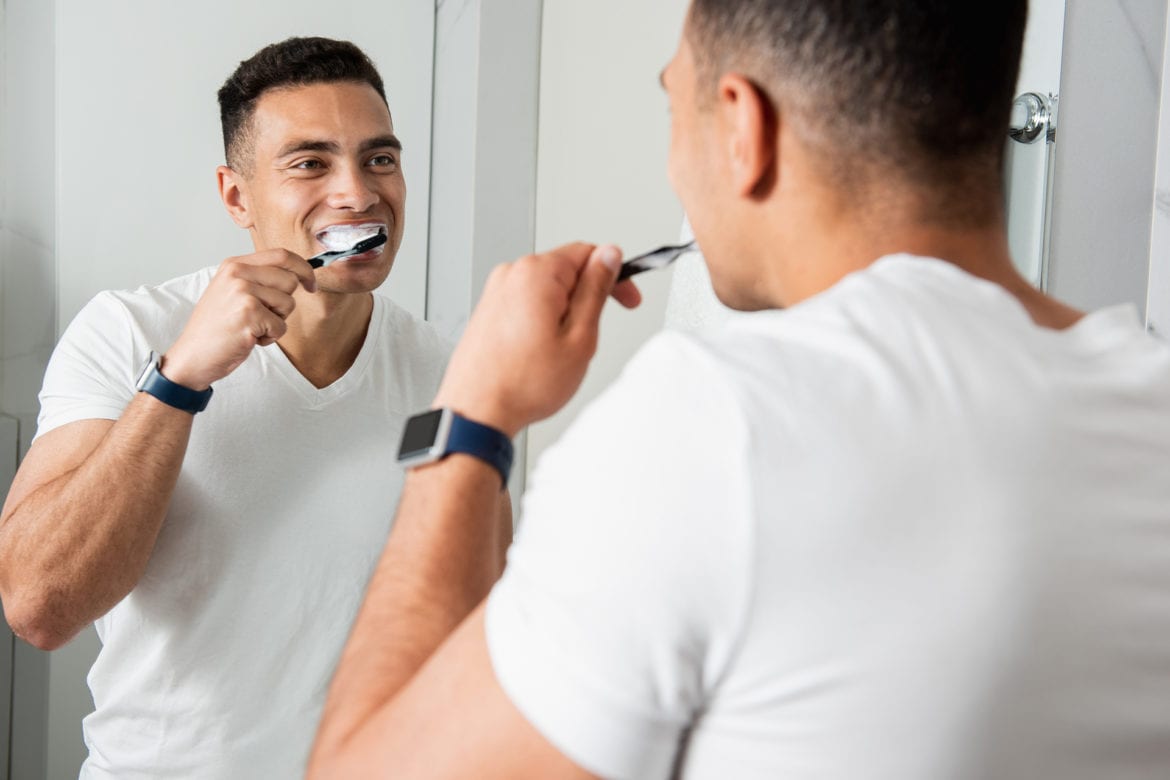If you wake up with morning dragon breath (raises hand), you might make a beeline for the bathroom to brush your teeth ASAP.
Instantly, your breath feels fresher and you’re ready to greet the day. The downside is that if you eat breakfast or drink coffee after, you’ll leave the house — or hop on your first Zoom call — with mucky java breath and possibly food stuck in your teeth.
That’s why you might want to consider changing your a.m. routine to brush after breakfast, if possible. No, really — a lot of dentists agree on this one.
There’s “no question” it’s better to brush after breakfast, Bruce Valauri, DDS, chief dental officer with ProHealth Dental in New York and New Jersey, told LIVESTRONG.com in a past article.
And Frank A. Scannapieco, DMD, PhD, chair of oral biology at the University at Buffalo School of Dental Medicine, also recommends holding off on brushing until after you’ve chowed down: “Brushing after breakfast helps simply because doing so will cleanse your mouth and freshen your breath, so it makes sense,” he says.
As long as you’re brushing at night before you go to bed, “I’d say the preferred time to brush in the morning is after breakfast,” Nammy Patel, DDS, of Green Dentistry in San Francisco, tells LIVESTRONG.com.
Leaving food particles from the morning meal allows sugar and carbs — prime food for bacteria — to stick around longer, which could encourage bacteria to grow. She advises eating your meal, sipping on water to rinse your mouth out, waiting a few minutes and then heading to the sink to brush.
Does It Matter What You’re Eating for Breakfast?
Drinking orange juice or eating citrus fruits like grapefruit delivers an acid hit to teeth. Over time, this acid can wear away teeth, Dr. Scannapieco says, and some people believe that brushing immediately after can worsen the problem.
So, if you’re sipping OJ or digging into half of a grapefruit for breakfast, are you doing irreparable harm if you brush after? The short answer is no, Dr. Scannapieco says. Your saliva neutralizes acids and can also remineralize your teeth.
“Your body has natural defense mechanisms in place,” he says. Erosion problems pop up when the acid exposure is chronic, say, if you’re someone who sucks on limes or lemons throughout the day.
One caveat: If you have dry mouth (a side effect of certain medications), then you don’t have this natural protective mechanism. “People with dry mouth should be more attentive to their oral hygiene and avoid exposing their teeth to acids,” Dr. Scannapieco says. Talk to your dentist about what’s right for you.
For those with dry mouth, Dr. Patel advises brushing after waking up to moisten the mouth and start the salivation process, and then again after breakfast to get the mouth clean.
OK, but I Don’t Eat Breakfast. What Now?
Maybe you skip breakfast because you’re not hungry, don’t like eating early or are following intermittent fasting (IF). In this case, when should you brush?

